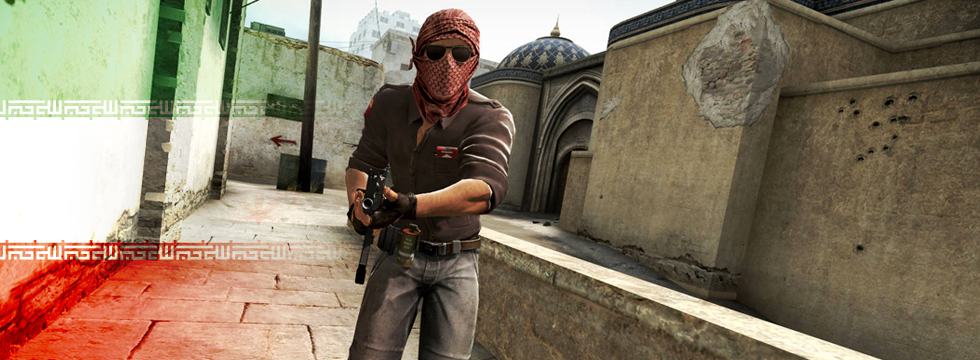Gaming in the land of Sharia – Iran with a gamepad
Due to the tension between USA and Iran, many people perceive the latter as a land existing beyond the mainstream entertainment sector. However, Iranians are enthusiastic gamers, who not only enjoy playing, but also develop more and more games themselves.
For some people it’s easy to forget that the world of electronic entertainment goes beyond Europe, North America, Russia, Brazil, South Korea and China. There are FIFA stands on the streets of Kirgyzstan; the first 3D FPS has recently been developed in Kenya; and correspondents of Arabian gaming sites are slowly starting to frequent every convention. But things are a bit different for Iran. As a result of the very strict laws, and – to put it mildly – tempestuous relations with the United States, the prime supplier of the biggest hits in the industry, gaming in this country has been marginalized. And to some extent rightly so: even though gaming is very popular there, the players have much more serious issues to cope with on a daily basis than high system requirements or no localized version.
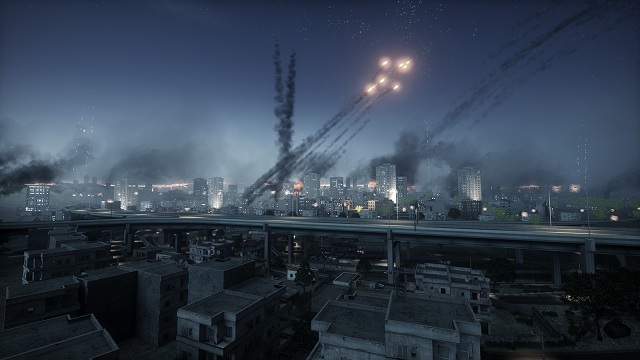
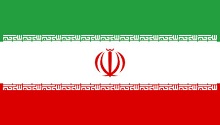
Gaming in Iran:
- Over 46 million users of the Internet (population c. 78 million);
- Over 18 million players – the biggest group in the Middle East;
- Around 200 developers;
- Most popular genres are sports, adventure, and racing games;
- Most popular platforms are Xbox 360 and PlayStatnion 3.
The heart of the issue lies in cultural differences (what else would it be?). It is true that the games published in the West are censored from time to time – be that numerous cases of the depiction of Svastika, or replacing the zombies with robots in Half Life – but the position in which Iranian players have found themselves is something different altogether. Gore themes, as well as any ”mature” or anti-religious content, are strictly prohibited. The censorship goes even further: a good example is the case of Battlefield 3, withdrawn from sale after “numerous petitions of the youth”, who thought that the depicted battle taking place in Teheran was an attempt to portray their country as a danger to international peace. In theory, those restrictions should exclude series such as Grand Theft Auto or God of War from the Iranian market; in practice, Iran is ridden with piracy.
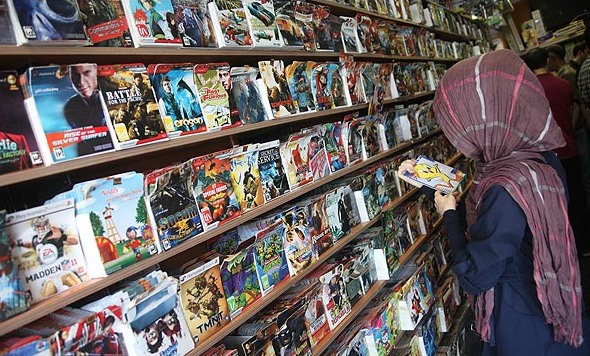
For the most part, it stems from the fact that the ban on productions from USA and Europe is combined with the ignorance of the government in the subject of copyright as long as it belongs to companies from those counties. ”The market is divided into two main sections: the Iranian titles and, much more popular, international titles”, says Reza Babaei, one of the people behind e-sport events in Iran. “The latter is almost only pirate market, and you can buy the best known games for 5, 6 USD”. In case of the prohibited titles, the games are not sold at bazaars, but rather from under-the-counter in professional electronic entertainment stores. If you ask for a given title, you have 60-70% chance of walking out with it.
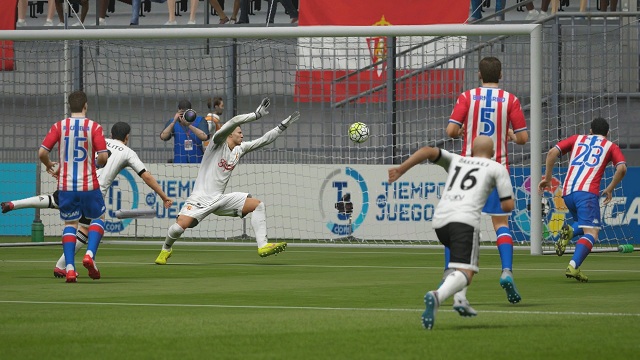
Of course, the vendors run a certain risk when selling prohibited games. Should they be so unlucky as to have their store inspected, they can face financial penalty or even have their store closed. But Reza says that, in most cases, such unpleasant situations can be solved with a moderate bribe. „Sometimes sellers hide banned titles from the racks and only sell them to reliable costumers. But some put them on the shelves. It all depends on the courage of the seller”. The owners of Internet cafes who keep prohibited content on their computers face a similar risk. „We had many cases, when LAN centers were closed for several weeks or even forever because of the inspections”, says Reza, admitting that a similar fate once endangered his own cafe – „They've sent an e-mail to us, with a warning to remove the game or it will cause the LAN center closure. Oficially we did what they said, but we installed it on the hidden partition for our returning costumers and teams”.
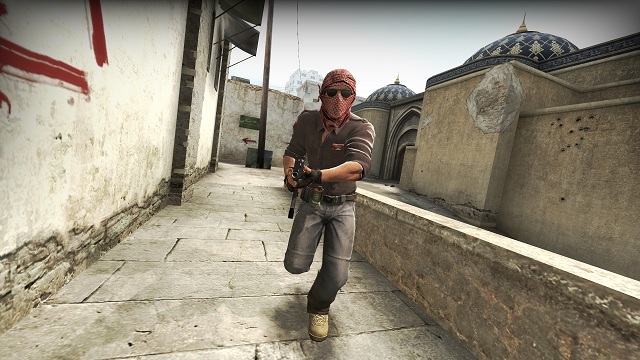

Cracked games are unavailable on eight-generation consoles, which leads to the question – do Iranians even use Xbox One and PlayStation 4? They sure do, though the most popular – amounting to 75% of the market – are the previous-generation consoles. The third and fourth place belong to Xone and PS4, respectively.
The troubles in Reza’s cafe were caused by Counter-Strike. Multiplayer games are obviously more troublesome, as server providers need a license that binds them to censor all the elements that are contrary to the culture-code. The famous shooter by Valve was banned for a long time because the terrorists were thought to resemble a paramilitary volunteer militia, Basij, appointed shortly after the Iranian Revolution. „We had to edit the game, change the name and the skins of the teams to Team Blue and Team Red. There are lots of titles, where censors only had problems with part of the content”, says Reza. In Dota 2, the skill called “Hand of God” turned out to be problematic – using the name of god in a pop-culture product was perceived as controversial (for the same reason God of War was banned in Arab countries.) Owners of League of Legends severs had to swap textures to hide “too explicit women’s attributes”.
That’s the least of online gaming problems. Due to economic sanctions imposed by the USA, the American companies aren’t eager to share their products with Iran.
In some cases it’s not a huge problem, as many players utilize the wonders of VPN (Virtual Private Network) to provide fake American addresses and thus bypass for example Steam’s restrictions. But there are games that simply ban players with Iranian IP - „Lords of the Rings Online or Star Wars: The Old Republic did so”, says Reza. “But the biggest action was conducted by Blizzard few years ago”. In 2012, the developers of Diablo and StarCraft blocked the access to Battle.net for Iranians.
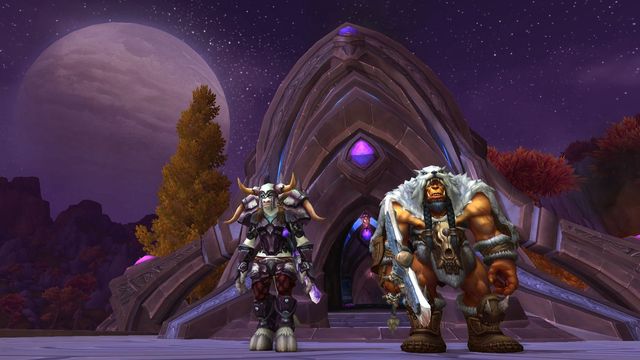
The fans of World of Warcraft had the big gest reason to complain: „It was a subscription based game and these players have spent like 500 dollars in these 2, 3 years!”. Blizzard immediately announced that there would be no refunds for those affected by the sanctions. „Some accounts were world high ranks and owners spent like a lifetime to make them”, says Reza „After two or three years they've decided to re-open the accounts, but by then lots of World of Warcraft players have quitted”.
Given all of the above, the fact that the Iranian online gaming is doing pretty well is quite fascinating. Some players have even achieved international success. When asked about e-sport, Reza said: „It's almost the same culture around the world, gamers' culture”.
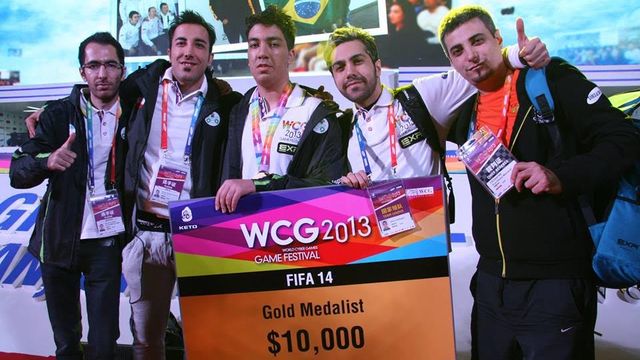
So, Iranians not only participate in all kinds of online tournaments, but they often manage to come out victorious. Reza cherishes the memory of his countrymen’s success in FIFA: „Our player (Keivan Jevadi Elyaderani) was the champion of the World Cyber Games 2013, another one, Navid Borhani, won Electronic Sports World Cup 2014. During this years' ESWC our player was 4th in the ranks”. And then Reza himself, during his decade-long career, has worked as the main admin and a judge at the abovementioned World Cyber Games.
There are also some unexpected advantages to those difficulties in obtaining Western games. The government there has lately proposed a theory of so-called “soft war”. According to this concept, the Western civilization, in order to root out Iranian tradition and identity, is flooding its market with books, films, and videogames. Where’s the up-side? The local developers are getting more and more funding by the government. According to data provided by Iranian Computer and Video Games Foundation, there are about 200 developers working in Iran, and in the years 2010-2015, a couple of dozen of games were released.
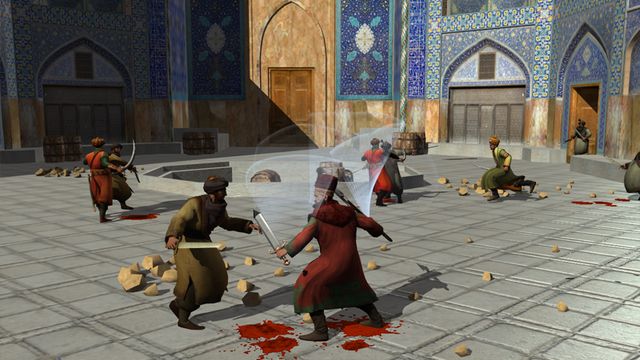
Obviously, the government funding comes with strings attached. First and foremost, politically themed games can count on the biggest support; those include titles referring to the revolution of 1979, or to Anti-Zionist ideology. In a couple of games, the player fights American or Iraqi soldiers. One of the most flagrant examples is Missile Strike – a mobile game where the goal is to bomb Israel. Released on the day of al-Quds (that’s the day when Iranians demonstrate their indignation caused by Jewish presence in Jerusalem, which is a sacred city also for Islam), the title – according to its developer, Mehdi Atash Jaam – was released as the answer to obliteration of Teheran in Battlefield 3.
In 2012, during a video game exposition in Teheran, The Stressful Life of Salman Rushdie and Implementation of his Verdict was announced – a game featuring the story of the fatwa issued by Ayatollah Khomeini on Salman Rushdie, the author of “The Satanic Verses”. Although the project was apparently dropped – there have been no news on it since the announcement – we can only assume that this game probably wouldn’t be about helping Rushdie to write another masterpiece…

Yet, according to Reza, this kind of games is not too popular among local players: „Gamers don't commonly care about political stuff, they like to play good games”. The government, apart from supporting such titles, also helps to release games inspired by the culture, history, and mythology of Iran. Among the most successful games developed there is Quest of Persia: Lotfali Khan Zan; it takes the player back to the 18th century and shows the end of Zand dynasty. The sequel – Nader’s Blade – tells the story of Nader Šah Afšar – one of the most brilliant Persian commanders. Both are action games which can’t be even compared with games form USA, Europe or Asia, but considering the relative inexperience of the developers from Iran, those games uite decent. Another title, an FPS released in 2011 entitled Mir Mahna lets the player assume the role of a national Persian hero who managed to repel the invasion of Dutch colonists in the 18th century.
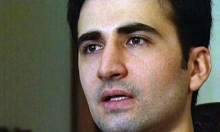
The Iranian government is not particularly fond of Americans – this hostility was displayed in 2011, when a former military man with CIA connections, and also a game developer – Amir Hekamti – was arrested and incarcerated in a prison in Teheran, after paying a visit to his family. He was accused of espionage, and sentenced to death. The penalty was later changed to 10 years of imprisonment. The United States declared those accusations absurd; the Department of State tried to intervene, but to no avail. Hekmeti was ultimately released after serving half of the sentence. His release was proceeded by USA lifting the sanctions on Iran. A funny coincidence, huh?
The development of the gaming industry allowed the Iranian games to leave their home market. At 2009’s gamescom there was a booth where people from the Iranian Computer and Video Games Foundation presented the results of Iranian developers’ work for the first time. From that moment on, Iranian developers become regulars in the biggest European conventions, each year bringing along at least a dozen titles, and invariably drawing attention of numerous journalists – google it, and you’ll see that some major sites have written about them. And it doesn’t look as if anything will change, since their studios can count on the aid of the government, and don’t have to stick to religious or historical themes. E.T. Armies, released via Steam last month, can boast a budget of $180 000, and instead of the Islamic revolution, it features an alien invasion. Another title – Dark Years – was presented last year on gamescom by a foreign publisher – a British company called Kingstill International Service Software.
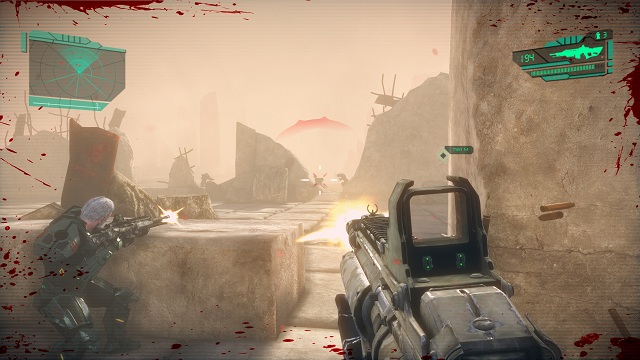
Still, it’s hard to think of Iran and it’s game development as aspiring to stand in the same row as European or American games. Such efforts are very difficult due to politics and strict laws that ban certain themes, as well as lack of experience and tradition of developing games. Yet it’s fascinating to look at the reality of players from Teheran or Isfahan. We frown with disappointment when we learn that the next installment of Uncharted is delayed, and wonder if our PC will be able to run The Division on high settings. The players in Iran are trying to make their hobby as ordinary as possible (although not always by legal means) in face of tense political relations, and harsh government. After all, as Reza has told me, it’s the same kind of culture as anywhere else – the culture of gamers.
Special thanks for helping me with this article goes to my friend Matthias Rochtus, for providing me with his contacts in Iran; to Ramin Barati, for words of encouragement; to Amin Fakhari, for contacting me with Reza Babaei; and to Maryam Ahmadi of Iranian Video Games Foundation for providing me with the statistics about the Iranian video game industry.
This article wouldn't be published without the help from Reza Babaei, whose quotes could easily fill this whole article. It was incredibly interesting to chat with you about gaming in your country, and I hope that I did a decent job presenting it to the international audience. I couldn't thank you enough for making this feature possible.
